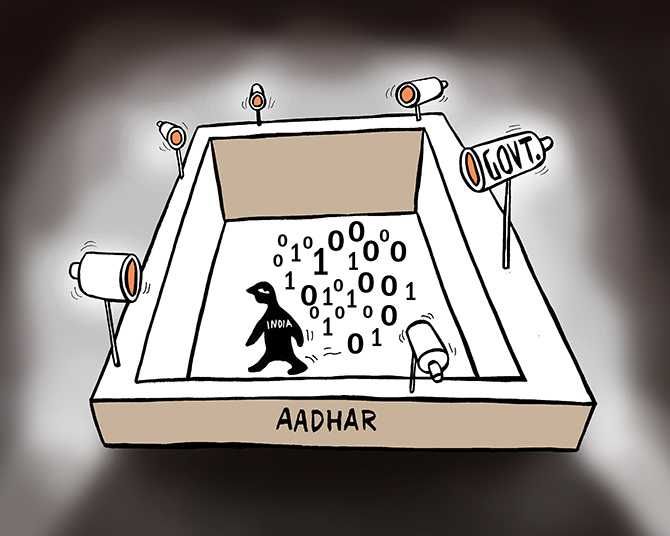Part I of this two-part blog series briefly discussed the idea of the online disinhibition effect and how the existence of anonymous online users on social media platforms has given rise to increased instances of online harms. It also discussed the extant Indian law dealing with online anonymity and how the changes suggested by the Joint Parliamentary Committee on Data Protection Bill 2019 are legally untenable.
In this blog, I first discuss two reasons why delegitimizing online anonymity may prove damaging to the idea of the internet as an enabler of free and democratized discourse. I then proceed to develop an alternative legal regime that may be adopted to balance online anonymity with the calls to check online harms.
Why Delegitimizing Online Anonymity is a Dangerous Idea
Anonymous social media presence is an empowering tool for people belonging to marginalized groups, whistleblowers, victims of abuse of any kind, including domestic and sexual abuse, victims of state violence or any other organized violence, or those expressing their true sexual identities. It enables them to exercise their right to free speech without any fear of retribution. Anonymized speech not only helps these people in attaining a sense of self-fulfillment but also benefits society in the form of wide sharing of classified or intimate information which would have been impossible but for the veil of anonymity. As HOPE not hate, a leading anti-fascist organization based in the UK noted in its written submission to the UK Joint Parliament Committee on the Draft Online Safety Bill, anonymity ‘hugely lowers the social cost of activism’ (¶1.6). It further noted,
“For many people, anonymity online is not antithetical to safety – it is safety. Being able to find information and support, develop opinions and try out different identities without having to declare or prove your identity can be a crucial lifeline. Anonymity allows people who are at risk – which could be related to their sexuality, gender, health, immigration status, or if they are experiencing abuse – to access information, help and support while avoiding questions, persecution or violence. It is an essential tool used by civil society … plus investigative journalists and whistleblowers to speak truth to power.” (¶6.8-6.9)
A blanket prohibition of online anonymity ignores and fails to provide any protection to such users.
Moreover, mandatory verification of users comes with the risk of user profiling. It has been widely studied as well as officially accepted by SMIs that their business model envisages collecting user data and studying engagement patterns to enable targeted advertisements. If mandatory verification of users is provided under law, social media intermediaries may sell user data to a different service provider, which may match the publicly available details of an individual on the social media platform and its platform to provide targeted services. Such extensive cross-platform user profiling may also pose several risks to the sanctity of elections and privacy in general. As the Canadian Supreme Court has observed in R v. Spencer,
“Some degree of anonymity is a feature of much Internet activity and depending on the totality of the circumstances, anonymity may be the foundation of a privacy interest that engages constitutional protection against unreasonable search and seizure. … in order to uphold the protection of privacy rights in some contexts, we must recognize anonymity as one conception of privacy. … Recognizing that anonymity is one conception of informational privacy seems to be particularly important in the context of Internet usage.”
Therefore, any policy to regulate online anonymity must target the actual problem, such as online abuse and the spread of fake news rather than abolishing anonymity altogether. As Evelyn Douek also observes in her recent paper, where she argues for shifting the regulatory focus from an individualistic ex-post review of online content to addressing the systemic design of social media platforms, ‘the desire to write simple rules is overtaking the importance of writing good ones.’
Solutions to Balance the Need for Online Anonymity with User Safety
An effective solution to balance the benefits of anonymity over the internet while managing and mitigating the risk of online abuse could be the adoption of a differential user rights regime. Under this regime, social medial intermediaries may be obliged to offer limited content creation rights, including limited sharing, commenting, and reacting rights, to anonymous or unverified users. This could include offering a limited end-to-end encryption facility to anonymous users, with a necessary caveat that the data protection regime will protect anonymous users from any unwarranted exploitation of such an arrangement by agencies of the state. Intermediaries can also be mandated to deploy suitable technologies to expeditiously track the proliferation of similar content from a considerable number of unverified accounts.
However, this arrangement would necessarily concern those groups for whom anonymity is an empowering tool. To address this, social media services with full functionality may be allowed to anonymous users after a set period if they furnish evidence of their adherence to the terms of service and build some form of reputation. This process need not follow elaborate application and determination stages but may simply include a basic background check on part of the intermediary to determine if there have been any successful complaints against the user in question or whether their past activity reflects any form of automation. This would introduce friction required to prevent targeted abuse by the proliferation of new accounts while allowing genuine users to utilize the benefits of online anonymity.
It must be complemented by offering an option to verified users to have control over the content that they encounter online and their level of interaction with anonymous or unverified users. They may be allowed to restrict unverified users from commenting on their content or engaging directly with them through interactive services. This would create a necessary layer of security from anonymous abuse for verified users. A similar proposal has been forwarded by Siobhan Baillie, a legislator in the UK, as part of her Social Media Platforms (Identity Verification) Bill. It requires ‘social media platforms to offer a user identity verification process to all users’ and ‘offer options to limit or block interaction with other users who have chosen not to verify their identity through that process’.
These changes would offer safety by design to social media users. However, despite such changes, there remains a possibility of a user receiving an unwarranted post, comment, or message from an anonymous account. To enable such victims to effectively seek legal redressal, SMIs must be statutorily mandated to disclose relevant details, including the name, residential address, and email address of the anonymous account holder upon receiving an order to this effect from a court of law. A similar scheme has been proposed under the Australian Social Media (Anti-Trolling) Bill 2022, wherein if a social media intermediary fails to institutionalize a complaint mechanism to furnish relevant contact details of an anonymous account holder in a time-bound manner or upon the filing of a defamation suit, the intermediary may be held as responsible for the content posted on its platform. The Bill also allows the victim to approach courts seeking ‘end-user information disclosure orders’ in this regard.
In addition to the differential rights regime, SMIs must also be mandated to regularly undertake risk assessment exercises to determine the kinds of risks posed to users and other individuals by anonymous users, analyse the complaints received from users against content generated by anonymous users, and exploring necessary technological solutions that could be deployed to manage and mitigate such risks. Such risk assessment studies must be made publicly available to apprise users of the potential risks associated with its platform.
Conclusion
Anonymity is a double-edged sword and it calls for smart solutions. While the issue of exploitation of social media services by anonymous users to create illegal and abusive content has been widely documented, the evidence of anonymity being an empowering tool for marginalized groups, whistleblowers and victims of several kinds of abuse abound. Therefore, the government must avoid simplistic solutions like extending the liability of illegal content from anonymous users to social media intermediaries or delegitimizing anonymity altogether, and must consider adopting the differential user rights regime, complemented with a strong data protection law and a comprehensive duty framework for the intermediaries to regularly assess and understand the risks posed by their services, followed up with necessary and adequate design improvements.
Anmol Jain is an LL.M. candidate at Yale Law School and a resident fellow at the Information Society Project. He has previously worked with the public policy team at Cyril Amarchand Mangaldas, focusing on tech-related policy issues. His primary research revolves around constitutional governance and institutional design. He tweets @AnmolJain_law and may be reached at anmol.jain@yale.edu.







[…] Posted byAnmol Jain […]
Thanks for sharing. I read many of your blog posts, cool, your blog is very good. https://accounts.binance.com/ru/register?ref=V3MG69RO
Can you be more specific about the content of your article? After reading it, I still have some doubts. Hope you can help me.
You have a way of explaining complex topics in a straightforward and easy to understand manner Your posts are always a pleasure to read
Your writing is so genuine and heartfelt It’s refreshing to read a blog that is not trying to sell something or promote an agenda
Thanks for being so generous with your insights. Please check my post at https://mazkingin.com
Thanks for breaking this down so simply. Please check my post at https://mazkingin.com
Love this appreciation for great content
Keep up the amazing work! Can’t wait to see what you have in store for us next.
Love this appreciation for great content
Your posts always provide me with a new perspective and encourage me to look at things differently Thank you for broadening my horizons
Can you be more specific about the content of your article? After reading it, I still have some doubts. Hope you can help me.